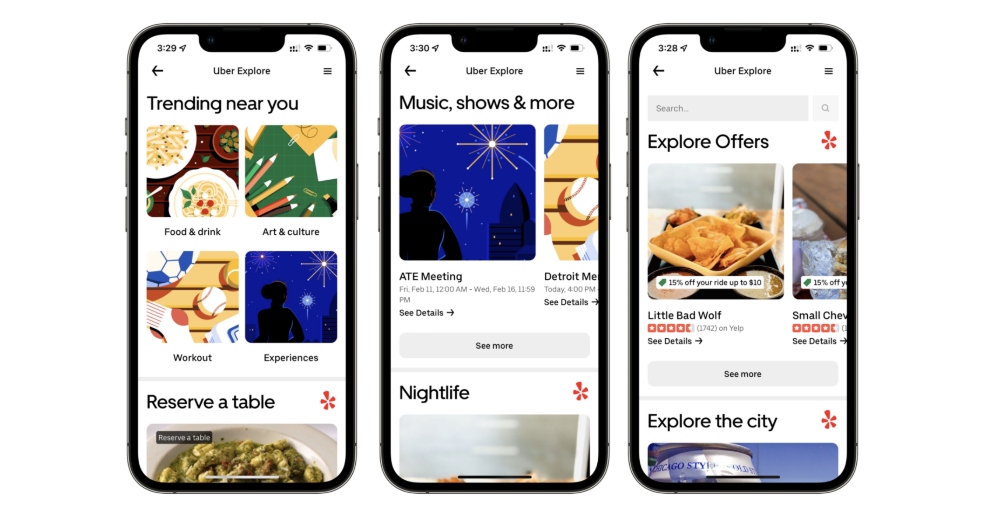A gig economy has its pros and cons. For anyone who has ever been an independent contractor, done freelance work, or worked for companies like Uber, Lyft, and DoorDash, the pros are clear – you get to work when you want, where you want and how much you want. Flexibility and gigs go hand in hand.
And the cons? Well, those are a little more complex. Without a W2 linking you directly to the company, you as an independent contractor don’t receive the same rights and perks that your 9-5 employee friends might. For example, your employer is not required to provide a healthcare option for you. You are also not entitled to earned time off or minimum wage.
So which is better?
The gig economy conundrum has made its way all the way to an appellate court in California last week. The ruling was that Uber and Lyft must classify their drivers as employees.
Back in May, Attorney General Xavier Becerra and city attorneys from L.A., San Diego and San Francisco brought forth a lawsuit that argues Uber and Lyft gain an unfair, unlawful competitive advantage by not classifying their workers as W2s.
Uber and Lyft responded to the suit, stating that if they were to reclassify their drivers as employees, their companies would be irreparably harmed – though the judge in last week’s ruling negated that claim, stating that neither company would suffer any “grave or irreparable harm by being prohibited from violating the law” and also that the financial burden of converting workers to employees “do[es] not rise to the level of irreparable harm.” Essentially, the judge called their BS.
Additionally, according to the judge, there is nothing that would prevent Uber and Lyft from offering flexibility and independence to their drivers – and they have had plenty of time to transition their drivers from independent contractors to employees (the gig worker bill that spurred this lawsuit was decided in 2018). Seems fair to me!
However, there is an oppositional proposition on the ballot that muddies the waters. Proposition 22, if passed, is a measure that would keep rideshare drivers and delivery workers classified as independent contractors, meaning that those workers from Uber and Lyft would be exempt from the new state law that classifies them as W-2 employees. And you might be surprised to know how many of the app-based rideshare workers are in favor of Prop 22!
In a class-action lawsuit, Uber has been accused of encouraging drivers and delivery workers to support Prop 22 via the company’s driver-scheduling app. It appears, unfortunately, that Uber is manipulating its workforce by wrongly hanging their jobs over their heads.
On this matter, Gig Workers Rising stated: “If Uber and Lyft are successful in passing Prop. 22 and undo the will of the people, they will inspire countless other corporations to adapt their business models and misclassify workers in order to further enrich the wealthy few at the expense of their workforce.”
Ultimately, the fate of California Uber and Lyft driver’s in still in question. It’s unclear if the question we should be asking is, will Lyft drivers have proper healthcare through their jobs or will they have jobs at all. All of this is occurring at a time where millions are jobless and 158,000 individuals sought unemployment support this week due to COVID-19 layoffs.
Personally, I have little sympathy for tech-giants that rake in billions off the backs of the exploited working-class. If the CEO of Uber is an ostentatious billionaire, then his employees should have health insurance. Clear and simple.
The scariest part of the gig economy is that workers have become increasingly happy to work for a company that gives them little to no benefits. More companies are dissolving or combining positions so that they can further bypass their responsibilities to their employees. Let us not be fooled: The dispute over whether or not to make Uber and Lyft workers W2 employees does not affect the health of the companies themselves. What it will affect is how fat the bonuses will be the big guys at the top, and that’s exactly why the companies are so adverse to the ruling. They’d rather their workers suffer than lose a single dime.
Anaïs DerSimonian is a writer, filmmaker, and educator interested in media, culture and the arts. She is Clark University Alumni with a degree in Culture Studies and Screen Studies. She has produced various documentary and narrative projects, including a profile on an NGO in Yerevan, Armenia that provides micro-loans to cottage industries and entrepreneurs based in rural regions to help create jobs, self-sufficiency, and to stimulate the post-Soviet economy. She is currently based in Boston. Besides filmmaking, Anaïs enjoys reading good fiction and watching sketch and stand-up comedy.









































independent contractor
November 12, 2020 at 9:18 am
Very interesting to read, especially in the immediate aftermath of the election. I wonder how California’s Prop 22 will affect this — and the folks who do the taxes of gig workers all over the country